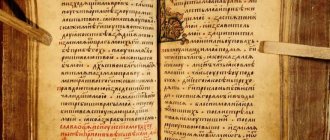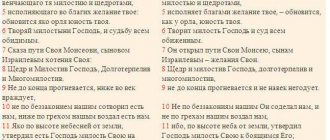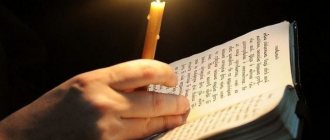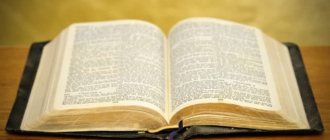"Sicut cervus" redirects here. Motet of Palestrina, see Sicut cervus (Palestrina). For the episode Fear the Walking Dead, see Sicut Cervus (Fear the Walking Dead).
This article uses Hebrew (Masoretic). numbering of psalms. Psalm 42 in Greek (Septuagint or Vulgate) numbering corresponds to Psalm 43 in Hebrew numbering.
| Psalm 42 | |
| “Like a deer desires beyond water streams” | |
| Hymn psalm | |
| Psalm 43 Les Très Riches Heures du duc de Berry (fol. 97v), depicting a drunkard | |
| Another name |
|
| Language | Hebrew (original) |
Psalm 42
This is the 42nd Psalm from the Book of Psalms, often known in English to begin,
As a deer rushes after streams of water
(in the King James Version).
The Book of Psalms is the third section of the Hebrew Bible, and the Christian book of the Old Testament. In the Hebrew Bible, Psalm 42 opens the second of the five books (sections) of Psalms.[1] The Greek Septuagint version of the Bible, and usually Latin translations of this psalm Psalm 41
in a slightly different numbering system, although the Nova Vulgate translation follows the Hebrew numbering.[2] A psalm is a hymn psalm. This is one of the twelve psalms attributed to the sons of Korah.
In Latin it begins in the Psalterium Gallicanum (version in the Romanus Breviary before the optional introduction of the Versio Piana
in 1945)
Quemadmodum desiderat cervus
;[3] but
Sicut cervus
in the little-used
Psalterium Romanum
.
It begins Like the Breeches of a Deer
in Tate and Brady's English Metrical Version (1696) and in Coverdale's translation in the Book of Common Prayer,
As a Deer Desires Streams
.
The psalm is an integral part of the Jewish, Catholic, Anglican and Protestant liturgies and was often set to music, especially in Palestrina. Sicut cervus
, Handel's
Like the Breeches of a Deer
and Mendelssohn's
Psalm 42
.
Background and themes
Although the psalm refers to “the sons of Korah,” the text is written in the first person singular.[4] The psalm can be divided into two parts, each ending with one line (verses 6 and 12 in Hebrew).[5]
The psalmist laments all the hardships he experienced in exile and prays for salvation.[4] He laments his distance from the temple of God and expresses his desire for renewed divine presence.[5] Henry suggests that David may have composed this psalm when he was prevented from returning to the sanctuary in Jerusalem either because of persecution from Saul or because Absalom's revolt.[6]
Some ancient Hebrew manuscripts combine this Psalm with Psalm 43.[7]
History of writing
Psalm 42 tells of the difficult times when King David faced the betrayal of his son Absalom. He did not believe that his son had rebelled against his father and his king. He constantly prayed to the Lord for help and protection. This was a real test that had to be passed with dignity. Therefore, David did not hide his fate, but believed only in God. The author of the text of the inscription is one of the sons of the Koreans. They were all David's loyal subjects.
Text
Hebrew Bible Version
The following is the Hebrew text of Psalm 43:[8]
| Poem | Hebrew |
| 1 | לַֽמְנַצֵּ֜חַ מַשְׂכִּ֥יל לִבְנֵי־קֹֽרַח |
| 2 | Home ֹ֖ג אֵלֶ֣יךָ אֱלֹהִֽים |
| 3 | צָמְאָ֬ה נַפְשִׁ֨י | Please contact us ים |
| 4 | הָֽיְתָה־לִּ֬י ד means ֵלַ֥י כָּל־הַ֜יּ֗וֹם אַיֵּ֥ה אֱלֹהֶֽיךָ |
| 5 | אֵ֚לֶּה אֶזְכְּרָ֨ה | וְאֶשְׁפְּכָ֤ה עָלַ֨י | נַפְשִׁ֗י כִּ֚י אֶֽעֱבֹ֨ר | Home וֹדָ֗ה הָ֘מ֥וֹן חוֹגֵֽג |
| 6 | מַה־תִּֽשְׁתּ֬וֹחֲחִ֨י | נַפָ֥י הוֹחִ֣ילִי לֵֽ֖אלֹהִים כִּי־ע֥וֹד אוֹדֶ֗נּוּ יְשׁוּע֥וֹת פָּנָֽיו |
| 7 | Please contact us מְ֜חֶרְמוֹנִ֗ים מֵהַ֥ר מִצְעָֽר |
| 8 | Home ּרֶ֥יךָ וְ֜גַלֶּ֗יךָ עָלַ֥י עָבָֽרוּ |
| 9 | יוֹמָ֚ם | יְצַוֶּ֬ה יְהֹוָ֨ה | Home ּֽי |
| 10 | אֽוֹמְרָ֚ה | Please contact us ְּלַ֣חַץ אוֹיֵֽב |
| 11 | בְּרֶ֚צַח | Home הַ֜יּ֗וֹם אַיֵּ֥ה אֱלֹהֶֽיךָ |
| 12 | מַה־תִּֽשְׁתּ֬וֹחֲחִ֨י | Please contact us ֣וֹד אוֹדֶ֑נּוּ יְשׁוּעֹ֥ת פָּ֜נַ֗י וֵֽאלֹהָֽי |
King James Version
- As a deer desires to rush to the streams, so desires my soul after You, O God.
- My soul thirsts for God, the living God: when will I come and appear before God?
- My tears have been my food day and night, and they constantly say to me: where is your God?
- Remembering this, I pour out my soul: I went with the people, I went with them to the house of God with a voice of joy and praise, with the multitude observing the holiday.
- Why are you cast down, my soul? and why are you worried about me? trust in God, for I will still praise him for the help of his face.
- O my God, my soul is cast down within me: therefore will I remember Thee from the land of Jordan, and from the Hermonites from Mount Mizar.
- The deep stinks into the abyss from the noise of waterspouts: all your waves and your waves roll over me.
- And yet the Lord commands His mercy by day, and by night His song will be with me, and my prayer will be to the God of my life.
- I will say to God, my rock: why have you forgotten me? Why do I go in mourning because of the oppression of the enemy?
- As with a sword in my bones, my enemies reproach me; and they say to me daily: Where is your God?
- Why are you cast down, my soul? and why are you worried about me? Trust in God, for I will still praise Him, who is the health of my countenance and my God.
Interpretation of Psalm 43
- Verse 5: David turns to his sorrowing soul, having received no help. Try to confirm his actions with the word of the Lord.
- Verses 1-2: It tells about the people who conspired against the king. All conspirators are evil, heavenly punishment awaits them. David asks the Lord for protection and believes in his help. All disasters befell the king. Experience the feeling of suffering and pain.
- Verses 3-4: Expressing all his pain, he believes in the miracle of the Lord. Continue to read prayers day after day. The Almighty will certainly send David prosperity and happiness. And the king will go to the great mountain. He will never tire of thanking God for all the miracles sent.
Uses
Judaism
Sephardic Jews recite Psalm 43 on the first and second nights of Sukkot before evening prayer.[9] Those who follow the custom of Gra say Psalm 43 as the Song of the Day on the second day of Sukkot.[10]
Verse 2 is spoken during Selichot.[10]
Psalm 42 is one of the ten psalms of Tikkun HaKlali of Rebbe Nachman of Breslov.[11][12]
This psalm is traditionally read as a prayer to end exile and "find favor in the eyes of others."[13]
New Testament
The Septuagint rendering of some words in verse 5[note 1] shows a close resemblance to the words of Jesus in the Agony in the Garden[note 2] as recorded in Matthew 26:38[14] or mark 14:34.[15][16][ 17] The fragment of the following verse[note 3] in Greek resembles what Jesus said during the same event,[note 4] according to John 12:27.[18][19]
Church Fathers
In his speech on this psalm, St. Augustine of Hippo says this is in keeping with the aspirations of the church.[20][21]
Catholic Church
in the Rule of St. Benedict (530)[22][23] this psalm was the fourth of those assigned for the second night of Monday Matins.[24] in the Roman Breviary promulgated by Pope Pius V in 1568 it is the fourth day of Matins Tuesday. In 1911, the Reform of the Roman Breviary by Pope Pius appears, divided into two parts, on Tuesday sext. In the post-Vatican II Liturgy of the Hours, this is the first psalm in praise on the Monday of the second of the four weeks covered by the psalter. in the Roman Missal, the responsorial psalm is sung after the reading, several times consisting of verses from this psalm, as at the Easter Vigil and at Masses for the dead.
Psalm 42
Psalm forty-second has the following inscription: Psalm to David, not inscribed among the Jews
, i.e. This psalm in the Hebrew Bible does not have any inscription, and this psalm does not have an inscription, of course, because it, both in content and in the manner of expression, is completely similar to the 41st psalm preceding it and constitutes a continuation of it; or more precisely, Ps.42, in relation to the 41st psalm, constitutes the third and last stanza of one whole psalm, concluding with the same words of hope and devotion to the will of God (1st stanza of Ps.41:2-6; 2nd stanza of Ps. 41:7–12; 3rd verse of Ps.42:1–5). On this basis, the general opinion of the Church Fathers and learned commentators was formed that both of these psalms constituted one psalm in ancient times.
Ps.42:1 Judge me, O God, and discern between me: from the unholy tongue, from the unrighteous and flattering man, deliver me.
The expression from the tongue is incredible
means: “from an unmerciful, unkind people,” by which the psalmist here means the people of Israel, who gave themselves over to the side of the rebels who plotted against the anointed of God and expelled him from Jerusalem.
And by the name of man, unrighteous and flattering,
he means the conspirators themselves: Absalom, Ahithophel and their closest accomplices.
Expressing a complaint against this unkind people and against these wicked and treacherous rebels, David asks God for righteous judgment on himself and on them. He hoped that when God began to judge him, the truth would be on his side, and therefore he asked that the Lord, having tested him and considered the justice of his case, would pronounce His righteous verdict, give him help against the tongue of the
and treacherous
man deliver
His servant from the wicked people who unrighteously embittered the righteous.
Ps.42:2-3 Are you not, O God, my strength? Have you rejected me? And I go around complaining, and sometimes the enemy insults me? Send Thy light and Thy truth: she will guide me, and lead me to Thy holy mountain and to Thy villages.
The second verse expresses the same thoughts and feelings as the eleventh verse of the 41st Psalm, although in different words. Calamities befell the psalmist on all sides, and as a result he endures unspeakable sorrows and sufferings, which bring darkness of despondency and lamentation to his soul. The hostile forces surrounding him would like to take away from him the last and only moral support - trust in God, Protector and Fortress
him, saying to him
every day: Where is your God?
He forgot about you and
rejected
you.
And as a result of such a misfortune from his enemies, he walks with a downcast gaze, with a lamenting face, and gloomy thoughts and feelings overwhelm him to such an extent that he finds no peace for himself either day or night and is forced to turn to God with a prayer filled with deep sorrow: God, if You are my strength
, if
You are my protector,
then why
did You reject me?
Why have you forgotten me; And I go around lamenting, and sometimes the enemy insults me? The enemies have removed me from Your sanctuary, and it seems to me that You have turned Your face away from me, the light of
truth
and grace does not shine over me, as it did before.
But, expressing such sorrowful feelings and lamentations, the psalmist does not lose heart and does not lose hope in God, and therefore continues his prayer to Him in these words: send me
, O Lord,
Thy light and Thy truth
, may they lead me and lead me
to Thy holy mountain
and in Thy mansions.
By light
the psalmist here means God’s favor towards him (cf. Ps. 43:4), and by words
Thy truth
is fidelity to His promises, according to which God must restore the right of the innocently persecuted. If Thy light and Thy truth return to me, then all the former joys and all the former well-being will return, with the return of the opportunity to be present in the sanctuary and exercise in deeds of piety and worship.
Ps.42:4 And I will go down to the altar of God, to God who rejoices my youth: let us confess to Thee on the harp, O God, my God.
With the return of my former well-being, says St. David, when the Lord sends His
and
His truth,
I will have the opportunity to ascend His holy mountain, Mount Zion, where the tabernacle of God was erected, and approach the altar of God, the sacrificial altar in the courtyard of the tabernacle, and I will be in the invisible presence of God Himself, and this will give me such joy and joy that I will feel
my youth returning to me,
I will remember those young days and years of my life when I could unhindered, in joy and joy, constantly praise the Lord before His holy altar.
And I will not remain ungrateful to God for such His mercy towards me: I will offer Him a solemn sacrifice of praise and thanksgiving - let us confess to You on the harp, O God, my God
- I will praise You on the harp, O God!
Ps.42:5
there is a literal repetition of the 6th and 12th verses in the 42nd psalm, in which (repetition) the psalmist again turns to his grieving soul, which has not yet received the expected mercy from God, and again tries to encourage it with trust in God and patience in waiting salvation.
Music settings
Musical settings of the psalm include:
Classical
- Requiem for Ockeghem (15th century)
- Sicut cervus
Giovanni Pierluigi da Palestrina (16th century) - Quemadmodum desiderat cervus
by Dietrich Buxtehude (17th century) - Loys Bourgeois used the motif of this psalm as the basis for the chorale melody "Freu dich sehr o meine Seele".
- In the 17th century Michel Richard Delalande used this for a large motet.
- Like the trousers of a deer
according to Handel (18th century) - Chorale Was betrübst du dich
, part 6 from
Ich hatte viel Bekümmernis, BWV 21
by Johann Sebastian Bach (18th century) - Psalm 42
(19th century) - 2e verset du 41me psaume (2e vt du 42e de la Vulgate)
to Charles-Valentin Alkan (19th century) - Like a Stag
by Herbert Howells (20th century) - As Hart Pantet (Psalm 43)
(1962, 1965; SATB 3 '20"), Gloria Merle Huffman (1946–) (20th century) - Psalm 42 (There is a Longing in My Heart)
(1988; New International Version) by Maranatha! Singers (USA) - Psalm 42 (As a deer runs towards streams of water)
(2008; New International Version), by Sons of Korah - Sicut Cervus
, A cappella piece by Laura Krantz in 3 movements[25] - Quemadmodum
, 6-part motet by John Taverner - Psalm 42
to Tori Kelly[26]
Jewish
Kayal taarog
(Like a Deer, verses 2–3) is a popular Jewish song.[27] The early Hasidic Nigun was compiled by the first Lubavitcher Rebbe, Rabbi Shneur Zalman of Liadi. The third Lubavitcher Rebbe, Rabbi Menachem Mendel Schneerson (Tzemach Tzedek), also composed a melody for it.[28]
Notes
- Verse 5 in the English Bible numbering or verse 6 in the Hebrew Bible numbering contains ἵνα τί περίλυπος εἶ, ἡ ψυχή
, “Why art thou humbled, O my soul” (ESV). - The Gospels of Matthew and Mark record in Greek that Jesus says: περίλυπός ἐστιν ἡ ψυχή μου
, “my soul is exceeding sorrowful” (KJV) - Verse 6 in the English Bible numbering or verse 7 in the Hebrew Bible numbering contains ἡ ψυχή μου ἐταράχθη
, “my soul is cast out within me” (ESV) - The Gospel of John records in Greek that Jesus says ἡ ψυχή μου τετάρακται
, “my soul is troubled” (ESV).
Recommendations
- "Book 2: Chapters 42–72." Chabad.org
. 2022. Retrieved September 25, 2022. - New Vulgate: Psalm 42 (41), accessed September 28, 2020.
- Parallel Latin / English Psalter / Psalm 41 (42) Archived May 7, 2022 Wayback Machine Mediumist.net
- ^ a b
Abramowitz, Rabbi Jack (2018).
"Psalms - Chapter 42." Orthodox Union
. Retrieved September 25, 2022. - ^ a b
Spurgeon, Charles Haddon (2016).
Treasury of David
. Steps to Study the Bible. pp. 1456–7. - Henry, Matthew (2018). "Psalm 42". Bible Study Tools. Retrieved September 25, 2022.
- Stedman, Ray K. (April 29, 2015). Psalter: Folk Songs of Faith
. Discovery House. p. 125. ISBN 978-1-57293-880-9. Retrieved June 1, 2022. - "Teillim - Psalms - Chapter 42." Chabad.org. 2022. Retrieved September 24, 2022.
- Nulman, Macy (1996). Encyclopedia of Jewish Prayer: Ashkenazi and Sephardic Rites
. Jason Aronson. paragraph 209. ISBN 1461631246. - ^ a b
Brauner, Reuven (2013). "Shimush Pesukim: A Complete Index to the Liturgical and Ceremonial Uses of Biblical Verses and Passages" (PDF) (2nd ed.). paragraph 37. - Weintraub, Rabbi Simcha Y. (2018). "Psalms as the best means of self-help." My Jewish Education
. Retrieved September 25, 2022. - Greenbaum, Rabbi Abraham (2007). "Ten Psalms: English Translation". azamra.org
. Retrieved September 25, 2022. - "Categories". dailytehillim.com
. Retrieved September 25, 2022. - Matthew 26:38 Greek, Biblehub.com
- Mark 14:34 Greek, Biblehub.com
- Kirkpatrick, A.F. (1895). Book of Psalms: with introduction and notes.
Books II and III: Psalms XLII-LXXXIX . Cambridge Bible for Schools and Colleges. Vol. 16. Cambridge: University Press. paragraph 229. Received February 28, 2022. - Kirkpatrick, A.F. (1901). Book of Psalms: with introduction and notes.
Books IV and V: Psalms XC-CL . Cambridge Bible for Schools and Colleges. Cambridge: University Press. item 838. ISBN 9780243829507. Retrieved February 28, 2019. - John 12:27 Greek, Biblehub.com
- Kirkpatrick 1895, pp. 229-230.
- St. Augustine: Exposition of the Book of Psalms, Psalm XLII
- Exhibit on Psalm 43 at New Advent.org
- Prosper Guéranger, Regle de Saint-Benoit (Abbaye Saint-Pierre de Solesmes, reprinted 2007) p. 46.
- La distribution des Psaumes dans la Règle de Saint Benoît.
- Psautier latin-français du bréviaire monastique, (1938/2003), p. 161.
- Sicut Cervus
, YouTube video. - Tori Kelly Premiere of "Psalm 43" Herb Longs, Christian Beat. September 09, 2022.
- "Kayal Taarog." Zemirot Database. Retrieved September 25, 2018.
- "Heichal Negina" (in Hebrew). chassidus.com. 2004. Retrieved September 25, 2022.




